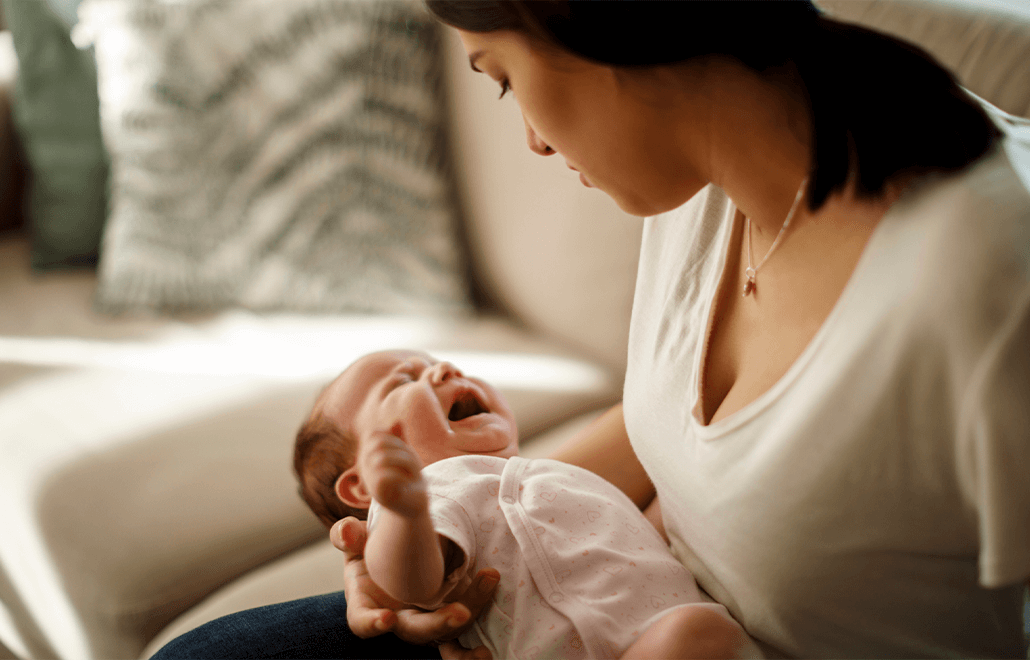
31 Oct What the First Month with a Newborn Is Really Like
Having a baby is one of the most magical experiences of your life. There are so many things to look forward to as you bring your little bundle of joy into the world. Every baby is different, and it doesn’t matter if you are a first-time mom or a veteran, the first month with a newborn is always a new experience. There are significant ups and downs to being a new parent. Here are some things you can expect once you bring your baby home.
Crying
We all know babies cry, but did you know that during the first month of motherhood, it is normal for you to cry more than you usually would? As your hormones adjust and regulate themselves after pregnancy, many women can experience the baby blues. The baby blues is a period right after having your baby where you feel sad, even if you’re happy. Sometimes just looking at your baby, you cry because you feel so much love for them. The good news is that the baby blues are usually short-lived. If you are feeling overwhelming sadness and are concerned, you may have postpartum depression. Do not wait and speak to your doctor. Postpartum depression is common and treatable; you do not need to feel the way you do.
Sleep
Babies sleep a lot, but they also wake up frequently. It’s normal for your newborn to wake up every two hours and sometimes even more often. You will often hear other parents tell you to sleep when the baby sleeps, but sometimes this is impractical if you have other children or things to get done during the day, like cooking or cleaning. It is important to ask for help as a new mother. If you are not getting enough sleep, ask someone you trust to come and hold the baby while you sleep or take a shower. Taking care of yourself as a new mother is as important as the care your baby needs.
Night Sweat
Did anyone ever tell you about postpartum night sweats? Just like crying after having a baby, many women experience night sweats. Postpartum night sweats occur due to the drastic decline in estrogen and progesterone after birth. The good news is that you should only expect to soak your sheets for about 4-6 weeks. After this time, your hormones should regulate, and you can go back to sleeping comfortably until your baby wakes up again.
Breastfeeding
Although breastfeeding is one of the most natural things you can do, that doesn’t necessarily mean that you or your baby instinctively know exactly what to do. Even if you have done it before, breastfeeding is something that you and your baby must learn together. Some babies need time to figure out how to latch correctly. A poor latch can leave your nipples cracked and sore. This, accompanied by the engorgement you experience as a new mother, can make breastfeeding more of a chore than an enjoyable experience. If you are having trouble breastfeeding, consider scheduling an appointment with a lactation consultant to help you and your baby get the most out of your breastfeeding journey.
Bouncing back
Society places so much value on “bouncing back” after you have a baby. The reality is that you just gave birth to a human being, and it takes time for your body to go back to ‘normal.’ It can take up to 6 weeks for your uterus to shrink back to its normal size after having a baby, so it’s completely normal to have a ‘baby bump’ for several weeks to months until your body adjusts to life without a baby inside. Give yourself grace, rest, eat well, and drink plenty of water. Your body is perfect just the way it is; if you treat it well, it will treat you nicely in return.
Through all the ups and downs, struggles, and joys of the newborn stage, at the end of it all, it only lasts for six weeks and goes by in the blink of an eye. Take the time to slow down and enjoy these moments with your precious new baby. Ask for help when needed, sleep whenever you can, and give yourself as much love and attention as you do to your new baby.

